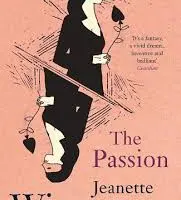Dying, by Arthur Schnitzler
I’ve read two Arthur Schnitzler’s now, first his 1924 novella Fraülein Else and now his earlier 1895 novella Dying. Having read both, I’ve become something of a fan.
I wrote up Fraülein Else here, it is an extraordinary novella that pulls off the difficult trick of being written entirely in the form of a teenage girl’s stream of consciousness when she is faced with a terrible dilemma. It’s a remarkable book. Dying, written 29 years earlier, for me doesn’t have quite the sheer wow factor Fraülein Else did (which was partly a result of the sheer technical skill that later work showed), but it too is remarkable.
Dying is the story of two lovers, Felix and Marie, both young and both passionate about each other. As it opens, Marie is meeting Felix for the evening and finds him distracted and upset, he reveals that he has been diagnosed as having less than a year to live, that he will in fact be dead by next Spring. Marie, devastated, swears to die with him, a promise that will become less romantic and more burdensome as the year continues. Will she keep to her promise, will he hold her to it? Those questions add drama throughout, but the real tension comes from the ebb and flow of emotions, the strains Felix’s approaching death puts upon them, the sheer horror of their situation.
Here, Felix tries to get Marie to understand his news, the reality of his situation:
“I know it’s hard to believe, darling. At this moment I don’t believe it myself. It’s hard to grasp, isn’t it? Just think, here I am walking along beside you, speaking words out loud, words that you can hear, and in a year I’ll be lying cold in the ground, perhaps already rotting away.”
“Stop it, stop it!”
“And you’ll look as you do now. Just as you look now, perhaps still a little pale from weeping, but then another evening will come, and many more, and summer and autumn and winter, and another spring – and then I’ll have been dead and cold for a year – what’s the matter?”
She was weeping bitterly. Her tears ran over her cheeks and down her throat.
A despairing smile passed over his face, and he whispered through his teeth, hoarsely, harshly, “I’m sorry.”
At the outset, Felix sets out to be stoical, resigned, philosophical about his fate. He intends to leave a will that will be a “quiet, smiling farewell to the world over which he had triumphed.” Triumphed, because he believes that by the end he will have learned to despise it, to have become detached, to accept the inevitable with an equanimity which the common run of man never achieves.
At the outset, of course, death is still a year away and his health still good.
As the novella continues, Marie tries to bolster Felix’s spirits, and to deny the facts of the situation. She looks desperately for each of his better days, hailing it as the start of a recovery and downplaying the days where he is weaker. She seizes on any sign of hope. Felix himself tries to disdain hope, to face up to the facts, but even so fear smuggles hope in however much he knows it no longer has any place in his life.
Much of the novella deals in the play of the pair’s emotions: Marie’s desire to sacrifice herself to ensuring Felix’s survival, her fears for him, her growing concern that he may hold her to her promise and her own shame that she might not wish to be held to it, her increasing wish to just go outside and live; Felix’s desire to die with pride and dignity, to die in accordance with his sense of himself as a sophisticated and cultured man, his increasing dependence on Marie, his jealousy of her continuing health, his growing resentment of how much he must rely on her and most of all his raw anger that she will outlive him so that her mere presence becomes a constant reminder of his own extinction. Felix’s attitude to death changes as it comes nearer, it is one thing to be phlegmatic when oblivion is yet a year away, as it grows closer however the terror becomes overwhelming:
“I’ll tell you straight out, people falsify the psychology of the dying, because all the great figures of world history of whose deaths we know anything felt duty-bound to put on an act for posterity. And what about me? What am I doing? If I talk calmly to you about all kinds of things that are no longer anything to do with me, what exactly am I doing?”
…
“I too feel in duty bound to pretend, whereas in reality I’m prey to a boundless, raging fear of a kind that healthy people can’t imagine. They’re all afraid, and that includes the heroes and the philosophers, only they make the best play-actors.”
Part of the sheer power of this novella is its portrait of the fear of death. Not just the natural and general fear that most of us have as a matter of course, few of us want to die. Rather, Schnitzler shows the specific yet inchoate fear of death held by those for whom it is no longer an abstract, no longer something to happen on some distant future day, those for whom it is now to come within the foreseeable future.
Also powerful is the increasing hopelessness Felix feels, the pointlessness. Felix is a writer, but why write when he will likely never finish what he is writing? Why read the news, when he will not be there to see how it turns out? As he comes to question, if you are dying, why do anything at all?
As time continues, everything becomes a mockery: an evening concert is a reminder that those attending will continue while Felix will not; an evening stroll is filled with crowds of the oblivious living: and as Felix’s health declines Marie of course remains a vibrant and healthy young woman, with her own desires however she may try to suppress them:
I shan’t of course speak to how it resolves, to what choices are made at the end or their outcomes, but it is no spoiler to say that as time continues the pair go through the full gamut of emotion, including of course for Marie the (to her) shameful desire to live again, to go out and dance and see crowds and not to spend her days ministering at a sickbed. At the same time, Marie is sick with grief, worn down literally by care:
She felt miserable, unutterably miserable. She would have liked to shed tears, but her emotion had something dry and withered about it. There was no comfort to be found anywhere, even in her own pain. And she envied him, for the tears flowing down his cheeks.
The novella captures brilliantly the guilt and conflict Marie feels, because she does love Felix, she does genuinely want to care for him, but it is a terrible burden and part of her cannot help but wish to have her life back, preferably with him but if that cannot be then without:
If only it were over! Yes, over! She no longer shrank from the idea, and those treacherous words that made hypocritical pity out of the most dreadful wish of all came to her mind. “If only he were at peace!”
Dying deals in issues which are genuinely painful. Felix and Marie’s predicament is a ghastly one, made all the worse for its credibility. It is in that sense not an easy read, though in quite another sense it is an effortless read being beautifully written and, in the Pushkin Press edition I enjoyed, being ably translated by Anthea Bell.
Dying has also been the subject of excellent writeups by John Self of the Asylum here and by Lizzy Siddal of Lizzy’s Literary Life here. Lizzy also wrote up Fraulein Else at that same link. Lizzy criticises Dying for “a tendency to melodrama in some places”, which is probably fair though I think it’s only a slight flaw. She notes too though that it is never maudlin, a point I firmly agree with.
For me, Dying was a remarkable work by a novelist with genuine insight into some of the most painful emotions any human being might ever have to experience, the loss of a loved one, the shame and guilt when love is not enough to make things better, our fear of letting each other down, our fear of losing each other, the anger and pettiness that gets between us, the horror of death, the unthinking joy of life.
Dying is a novel about a terminally ill Nineteenth century Viennese man, put like that it sounds a fairly unappealing read. Pushkin Press have though, as they’ve had with other titles, my thanks for putting this back into print as it’s a work that for all the specificity of its setting and characters is human and universal. I look forward to buying and reading more of Schnitzler’s work, and of his contemporaries, and I’m delighted that Pushkin Press is bringing these writers to our attention.














Pingback: Tweets that mention Dying « Pechorin’s Journal -- Topsy.com
I can see the connections you mentioned with the Caspary novel. I would like this, so good thing I already have a copy. Coincidentally, I just finished The Impossible Exile, a NF book about Zweig, and we both know how that book ends. I admit to curiosity about his death–why a man who tried so hard to escape the Nazis would top himself when he was safe. The book answers that question. The part about his wife’s decision to join him in death is esp. sad.
Glad to see you giving Madame Solario a go.
I loved this, it’s good to see a comment against it. The NF book sounds terribly sad.
Madame Solario, it’s very good but sadly I’ve been reading it for about six weeks now which does it no favours at all. I’ve just no time to read at the moment and Madame Solario is suffering for it.
That’s unfortunate, as yes I think it should be read quicker. Awful when life gets in the way of reading.
Yes, I may actually just have to abandon it for now and restart it entirely in a few months. I’m concerned that it’s got so stretched out that it’s doing it real harm, which risks my simply spoiling the book. It’s very frustrating as it’s a good book, but might be for the best.
As you know, I recently abandoned Proust, so I know what you mean.
Oh my, this one sounds excellent, too. I can see why you thought of Schnitzler while reading my Beware of Pity piece. I’ll start with Fraulein Else, but I’ve made a note of Dying. A good next step should I get hooked by Schnitzler (which I fully expect will happen).
Great reviews, Max. Thanks for directing me here…adding to my TBR yet again!
I was pleased I took them in the order I did. I should go back to Schnitzler, I’ve not read more since but since I was hugely impressed by this and Else I’m doing myself no favours by not reading more by him.
Pingback: Never had he felt so deeply that he was an old man | Pechorin's Journal